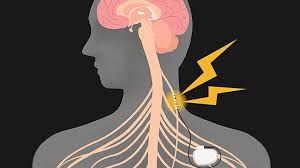If you’ve been feeling dizzy for months, it’s important to get checked out by a doctor to find out what might be going on. Dizziness can be caused by many different things, and it’s important to rule out any serious health conditions. In this blog post, we will discuss some of the most common causes of chronic dizziness, as well as some treatment options. We hope that this information will help you feel better soon!
Contents
Understanding Constant Dizziness

Dizziness is a feeling of lightheadedness or unsteadiness. It can make you feel as if you are about to faint. People often use the terms dizziness and vertigo interchangeably, but they are not the same. Vertigo is a type of dizziness that makes you feel as if you or your surroundings are spinning.
Dizziness is a common health complaint, and it can be caused by a variety of things. It’s important to understand what might be causing your dizziness, as this can help you find the right treatment.
Types Of Dizziness
One type of dizziness is called “vertigo.” This is a feeling that you are spinning or that the world is spinning around you. Vertigo can be caused by many things, including inner ear infections, head injuries, and certain medications.
Another type of dizziness is called “presyncope.” This is a feeling that you are about to faint. Presyncope can be caused by dehydration, low blood sugar, or standing up too quickly.
Disequilibrium: This is a type of imbalance that can cause you to feel unsteady on your feet.
If you have been feeling dizzy for months, it is important to see a doctor to find out what is causing your symptoms. Vertigo and presyncope are both treatable, so you don’t have to suffer from dizziness any longer.
Symptoms
If you are experiencing constant dizziness, you should see a doctor. This is especially true if the dizziness is accompanied by other symptoms, such as:
- Nausea or vomiting
- Shortness of breath
- Chest pain
- Heart palpitations
- Changes in vision
- Weakness or numbness
- Difficulty speaking
If you have dizziness that is severe or lasts for a long time, you should also see a doctor. Dizziness can be a symptom of a serious condition, such as a stroke, so it is important to get it checked out.
Causes

There are various causes of constant dizziness for months. They are as follows:
Stress or anxiety
Sometimes, dizziness can be caused by stress or anxiety. If you’ve been feeling particularly stressed out lately, or if you suffer from anxiety, this could be the reason you’re feeling dizzy. In these cases, relaxation techniques such as yoga or meditation can often help to ease the symptoms.
Low blood sugar
If you have low blood sugar (hypoglycemia), this can also cause dizziness. Hypoglycemia is often seen in people with diabetes, so if you have this condition it’s important to monitor your blood sugar levels carefully.
Dehydration
Dehydration can also cause dizziness, as well as fatigue, and headaches. Make sure you’re drinking plenty of fluids throughout the day, especially if it’s hot or you’re exercising.
Ear infection
This is an inflammation of the labyrinth, which is the part of your inner ear that helps you keep your balance. It can be caused by a viral or bacterial infection.
Another possible cause of dizziness is an ear infection. This is usually accompanied by other symptoms such as pain, fever, and nausea. If you think you may have an ear infection, it’s important to see a doctor so they can prescribe the appropriate medication.
Inner ear damage
Damage to the inner ear can also cause dizziness. This might be due to an injury, infection, or condition such as Meniere’s disease (as mentioned above). If you have any reason to believe your inner ear may be damaged.
Benign paroxysmal positional vertigo (BPPV)
This is a condition that occurs when small calcium crystals become dislodged from your inner ear and enter into one of the fluid-filled canals. BPPV is the most common cause of vertigo.
Migraine
A migraine is a type of headache that can cause dizziness due to the changes in your brain and the pressure on your nerves.
If you are experiencing constant dizziness for months, it is important to consult a doctor to rule out any serious underlying causes.
What Are The Treatment Options For Constant Dizziness?

If you’re experiencing constant dizziness, it’s important to consult with a doctor to rule out any underlying medical conditions. Once any potential causes have been ruled out, there are a few different treatment options that may be recommended by your doctor.
Vestibular rehabilitation therapy
This is a type of therapy that specifically targets dizziness and problems with balance. A vestibular rehabilitation therapist will work with you to develop exercises and strategies to help you cope with your symptoms.
This type of therapy can help to retrain your brain to better process information from your vestibular system, which is responsible for the balance. For example, you may be asked to do exercises that help improve your eye movement coordination or learn how to better control your body movements. For instance, you might need to:
- stand on one leg with your eyes open and then closed
- walk in a line heel-to-toe
- do quick turns of the head from side to side
- sit in a chair and quickly turn your head from side to side
These exercises help improve your ability to process information from your vestibular system and can help lessen your symptoms of dizziness.
Your doctor may also recommend that you avoid certain activities, such as lying down flat or bending over, which can make your symptoms worse.
Cognitive Behavioral Therapy
If you’re feeling dizzy for months on end, it could be due to an underlying condition called Meniere’s disease. However, there are several other potential causes for chronic dizziness, so it’s important to see a doctor to rule out any serious medical problems. One treatment option that may help relieve symptoms is cognitive behavioral therapy (CBT).
CBT is a type of psychotherapy that can help you change the way you think and behave in response to certain triggers. For example, if you’re feeling dizzy because of anxiety, CBT can help you learn how to manage your anxiety more constructively. This may involve learning relaxation techniques or identifying and changing negative thought patterns.
If you’re interested in exploring CBT for your chronic dizziness, talk to your doctor or mental health professional about finding a qualified therapist in your area.
Medications
There are a few different types of medications that can be used to help treat dizziness, such as antihistamines, antidepressants, and anticonvulsants. Your doctor will work with you to determine which medication is best for your case. The doctor prescribes medication to help you feel better.
Physical therapy
This can help you improve your balance and help with the symptoms of dizziness. This is a type of physical therapy that is specifically designed to help with the symptoms of dizziness.
Diet changes
Sometimes, making changes to your diet can help with the symptoms of dizziness. For example, reducing your intake of salt can help to reduce the symptoms of dizziness.
Central Nervous System Therapies
Dizziness has many possible causes, including problems with the ear, the brain, and the nerves that relay messages between the body and the brain.” If you’ve been feeling dizzy for months on end, it could be due to a problem with your central nervous system. In this case, therapies that focus on the central nervous system may help manage your symptoms.
Some examples of central nervous system therapies that could be beneficial for treating dizziness include:
- Craniosacral therapy: This is a gentle, hands-on therapy that involves lightly touching and manipulating the skull and spine. Craniosacral therapy is thought to help relieve restrictions in the central nervous system and improve communication between the body and the brain.
- Neurofeedback: This is a type of therapy that uses sensors to monitor your brain activity. The goal of neurofeedback is to help retrain the brain to function more normally.
If you’re dealing with chronic dizziness, talk to your doctor about whether one or more of these central nervous system therapies could be right for you.
Surgery
If you have experienced dizziness for a long time, it could be due to an inner ear condition that requires surgery to fix. Meniere’s disease is one example of this – it’s caused by a build-up of fluid in the inner ear, and can cause debilitating dizzy spells, as well as ringing in the ears and hearing loss. If you suspect you may have this condition, it’s important to see a doctor so they can run the appropriate tests and for the surgery.
Conclusion
It may be concluded that constant dizziness for months can be caused by several different underlying health conditions. If you are experiencing this symptom, it is important to see a doctor so that the cause can be properly treated.
Physical Therapy help patients recover from pain. If you’re experiencing Back pain, Shoulder pain, Knee pain, Neck pain, Elbow pain, Hip pain, or Arthritis pain, a physical therapist at MantraCare can help: Book a physiotherapy session


